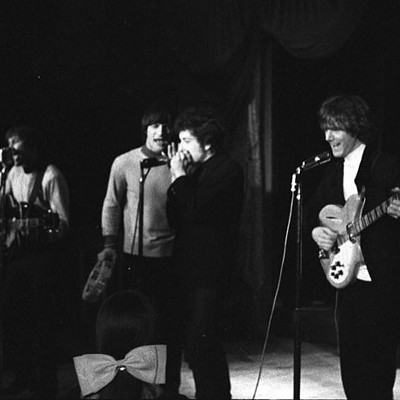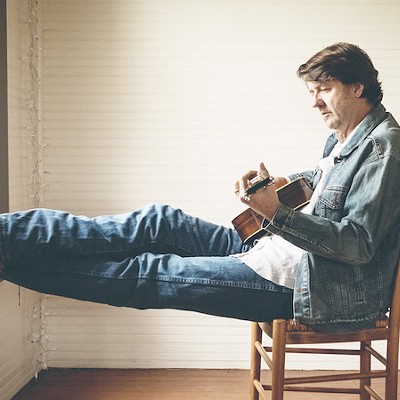Even the most naïve and surface Led Zeppelin listener tell you at least that they were influenced "by the blues." But this insightful and surprisingly solid documentary goes way further in delving into the sound and the performers which were in the minds (and on the home stereos) of Mssrs. Page and Plant, both in their youths and while recording some of the greatest rock music ever.
Even without the draw-you-in Zeppelin tag, Down the Tracks could serve just as well as a historical jaunt through the blues of Charley Patton and Son House through the electrifyin' of Muddy Waters and Howlin' Wolf, up to the English skiffle and folk booms. All of which took place well before the 1969 release of debut Led Zeppelin, where - according to one interviewee here - the band "pumped the blues with steroids."
Howlin' Wolf, "Smokestack Lightnin'" (1964)
And you can easily see why young, white, pasty-faced English teens would be attracted to American blues music with its raw, manly, and blatantly sexual power. The DVD does have a weakness in its unfortunate dearth of actual musical performance video. The absence of Zep songs and footage is understandable, given the probable high cost of their licensing fees.
But it's curious that there's so little - and then only snippets - of players like Son House, Muddy Waters, Howlin' Wolf and Bukka White. Elvis's guitar picker Scotty Moore, also noted as a huge influence on Page, doesn't even appear in a photo. As a result, Zeppelin's music is explained an awful lot by talking-head music writers and blues historians... mostly white males, middle-aged and often bearded.
Luckily, those heads belong to people like Charles Shaar Murray, Dick Waterman, Nigel Williamson and Steve Turner. All are solid, succinct and know their shit. More hardcore music historians will bemoan the only passing mention of the Zeps "borrowing" of older bluesmen's licks and lyrics, including Robert Johnson and Bukka White.
It took crafty Chess legend Willie Dixon (right) to sue - and win - when Zep released "Whole Lotta Love," which was basically a barely-altered take on his own "You Need Love." Borrowing elements from old blues/folk songs are taken for granted (Bob Dylan being a bad offender, all the way up to his last record, Modern Times), but the right thing for Page to do would have been to acknowledge the influence and let the still-living originators and their heirs share in the wealth.
Also, during the segments on Mississippi blues, we get too many easy recent historical shots of stereotypical dilapidated shacks, cotton fields and wary-eyed blacks congregated on dirt streets. But I digress...
Davey Graham, "Cry Me a River" (1959)
Down the Tracks also includes some demonstrative guitar footage shot for the video, none more touching than the segment with the recently deceased Davey Graham. His offbeat guitar tuning (DADGAD), Arabic and Indian-derived style and unique fingerpicking were a huge influence on Jimmy Page. And from a brief clip of Graham playing "Cry Me a River" in 1959, you can hear the beginnings of "Stairway to Heaven."
Others talk of his influence on Zep tracks like "Kashmir" and "Black Mountain Side." The contemporary Graham - obviously ailing when this footage was shot - does not speak in the camera, but he need not. Those close-ups of his fingers across the frets say all they need to. Overall, this edition of the Down the Tracks series will appeal both to fans of Led Zeppelin and roots music, and is solid in its scholarship.
If it sells just one more record by Son House, Howlin' Wolf or Davey Graham to a listener who's never heard them before but worn out his or her copy of Led Zeppelin III, then it's done a great service. - Bob Ruggiero
Eagle Rock Video, $12.99






